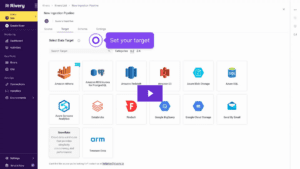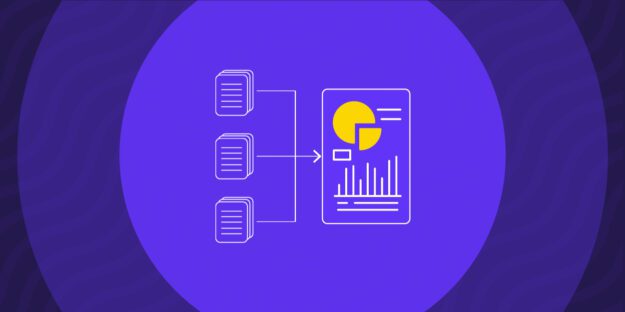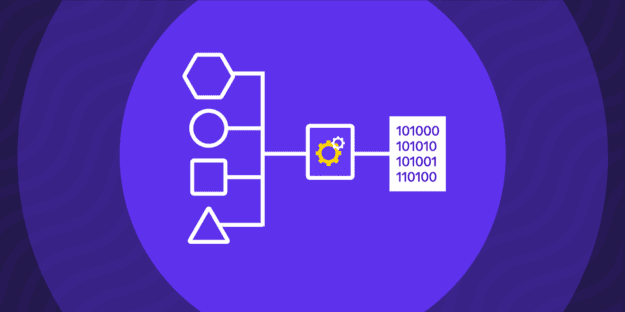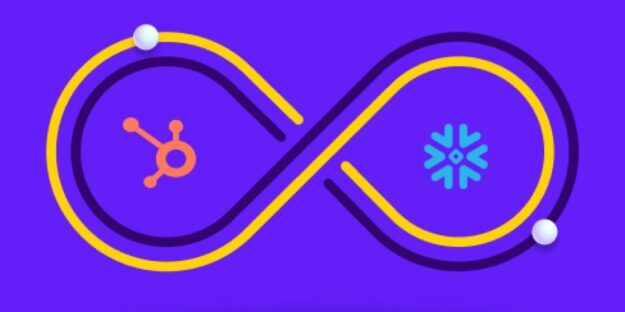Thanks to constant innovation on the IT front, the current business environment is evolving and improving rapidly. Such accelerated growth can only be supported with IT practices and methodologies that are quick to adapt but remain reliable and effective. That is where agile approaches such as DataOps and DevOps come into play.
These two methodologies aim to expedite work cycles by streamlining data management and software development. When properly implemented, these two processes will give any company an extra edge in the market. To do so, it’s crucial to understand how both approaches fit into the tech ecosystem and what each brings to the table.
DevOps: Overview
At its core, DevOps is the process of optimized software development and delivery, made possible by uninterrupted cooperation between the operations and development departments. It’s a collaborative effort that results in faster deployment of high-quality software products at a reduced cost.
It came into prominence as a response to the speed at which large SaaS companies developed and put out new products on the market. For example, Google uses DevOps to implement new updates, features, and functionalities to minimize errors and improve its services.
The reason it’s such an effective and agile tool is the core principles it’s based on:
- Collaboration – The business, development, and operations teams merge into a single unit that directly communicates and collaborates throughout the entire process.
- Automation – Automating certain repetitive aspects of the development lifecycle reduces errors and increases productivity.
- Constant improvement – This aspect is a staple in agile methodologies and focuses on eliminating unnecessary procedures and implementing new ones to resolve any issues.
- Customer focus – The team must never assume what the end customer wants. Feedback loops connected to a small product part or feature are essential to ascertain future developments or improvements.
- End goal – The final product must have a clear purpose or be a solution to a real problem.
DataOps: Overview
Data is undoubtedly becoming a valuable currency, and companies continue to acquire more and more of it. The information must be properly stored, managed, and easily accessed in the correct format to be useful to business users. That is the role of DataOps—to create data pipelines and improve data flow integration.
Major companies rely on this methodology to manage, handle, and streamline their data warehouses. For instance, Netflix uses DataOps to analyze its massive data banks, recognize user preferences and streaming habits, and give improved personalized recommendations.
DataOps is the leading choice for other companies as well because it’s founded on the following principles:
- Automation – By automating common and repetitious tasks, DataOps reduces the number of errors, boosts data management, improves efficiency, and reduces costs.
- Collaboration – The cooperation and communication between engineers, data analysts and scientists, business users, and developers is imperative. That helps build reliable tools that enable fast and easy data analysis and extraction.
- Layered interfaces – Displaying the information on different levels provides data professionals greater visibility and makes it easier to maintain the data pipelines.
- Openness – DataOps welcomes open-source technologies that expedite the implementation of solutions and increase flexibility when choosing the best tools.
- Data tracking – Having a clear data lineage is important when companies want to know how information was collected, processed, and utilized. It also helps reproduce desirable results and track possible errors.
- Diverse data integration – Different data management tasks and data volumes require different integration approaches. DataOps supports probabilistic, deterministic, and humanistic data integration.
Key Differences Between DevOps and DataOps
While both have similar goals of reducing costs and increasing efficiency, DevOps and DataOps are fundamentally different. While the primary goal of DataOps is effective management, automation, and integration of data, DevOps focuses on software development at an accelerated rate. They may share some core principles but interpret them in contrasting manners.
Below, we have briefly summarized their dissimilarities:
| Focus | DataOps | DevOps |
| Purpose | Extract, transform, analyze, and deliver high-quality data to glean valuable business insights. | Develop, build, and deliver software products at an increased pace without compromising quality, performance, or reliability. |
| Collaboration | The business unit, data engineers and analysts, and operations department work together as a single unit. | It’s a collaborative effort between the developers, the business unit, and the operations department. |
| Automation | Automates the process of data governance, multi-cloud integration, data sorting, and user-system interactions. | Automates tasks like testing, controlling, network and machine configuration, and organizing data sets. |
| Feedback | All users receive feedback simultaneously and in real time. | The involved parties get their insights in stages as the feedback enters the system. |
| Agile | Improves data quality and reduces the time it takes to analyze metadata. | Products are launched quickly, and errors are fixed as soon as possible. |
Key Similarities Between DevOps and DataOps
Because they both have roots in the Agile Methodology, DevOps and DataOps have some common elements and shared goals. Both methodologies strive to accomplish the following:
- Cross-team communication – Both processes emphasize the importance of collaboration between different teams. Establishing open and accessible communication channels encourages effective teamwork and creates a shared knowledge pool.
- Improve efficiency and quality – This is done by eliminating redundant and repeated tasks and processes. The result is fewer errors, guaranteed consistency, and an efficient use of time.
- Promote agile practices – The Agile approach helps teams optimize their work processes and increase productivity. They use continuous feedback to adapt their workflow to quickly changing work parameters and requirements.
- Prioritize monitoring – The two methodologies allow constant observation and control of the data and software products. That makes it easier to identify potential issues and react swiftly to optimize performance. The result is a high-quality final product.
Complementing DevOps and DataOps
Now that we have compared the two principles and shown how they work individually, maybe it’s time to see what they can accomplish in tandem. We already know they adhere to several of the same principles, which makes a solid base for a successful crossover.
When collaborating, DevOps and DataOps can use the principles of data governance to increase the security of software products. They can make information more accessible across the organization by developing easy-to-use tools that deliver the relevant data in the correct format.
Many well-known and successful companies combine these two methodologies to achieve better results. The streaming service Netflix uses DataOps to process and analyze user viewing preferences and habits then passes the data on to the DevOps team, which improves the streaming platform based on that feedback.
Factors to Consider When Choosing Between DevOps and DataOps
At this point, it’s clear that it’s not a matter of DataOps vs. DevOps but using each methodology in a way that fits your needs. Always keep the end goal and what you hope to achieve in mind. The desired product will inform you which approach you need to implement.
When deciding on the correct path, consider some of the following factors:
- Nature of the project – If your project revolves around analyzing and processing data, optimizing data pipelines, and extracting and transforming large-scale information, DataOps is the way to go. DevOps is the better choice when you’re developing and deploying software or managing infrastructure.
- Speed and frequency – DevOps can help if a project depends on swift code fixes and launches, while DataOps leans more into fast data processing, modeling, and real-time analytics.
- Compliance – Turn to DataOps to ensure the best data governance, quality, and security. DevOps is best suited to manage infrastructure compliance and security.
Conclusion
DataOps and DevOps play very distinct yet complementary roles in every company. It’s not a question of DataOps vs. DevOps, but realizing they offer distinct tools to address different issues. DataOps focuses more on streamlining data pipelines, while DevOps aspires to develop and launch software products quickly.
It’s important to realize their differences to best utilize them in your business and IT operations. It’s also imperative to recognize opportunities to work in tandem to achieve even better and optimized results. There is always room to implement either or both of these highly effective approaches, so look at your operational needs and decide how they can best benefit your business.
Minimize the firefighting. Maximize ROI on pipelines.





